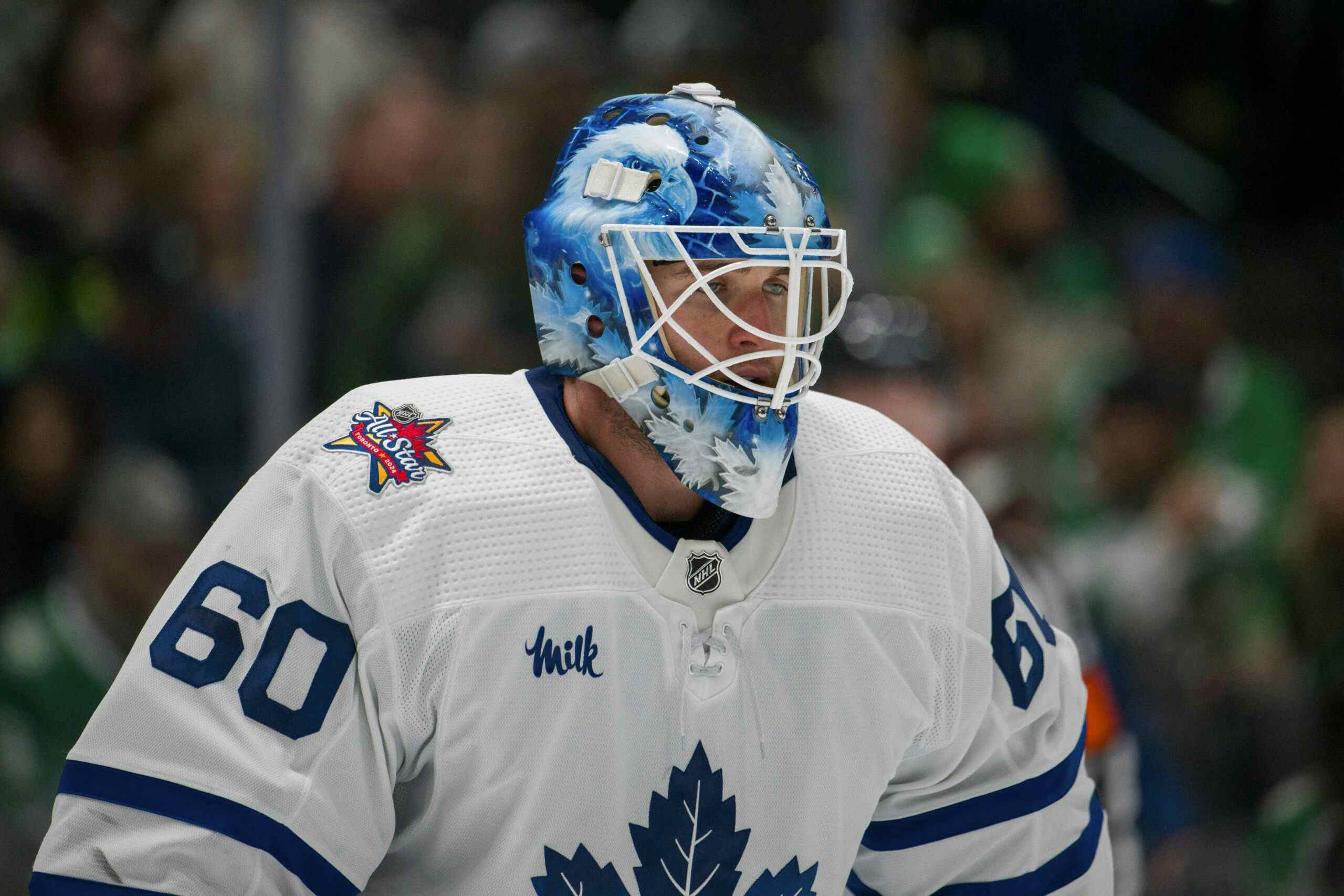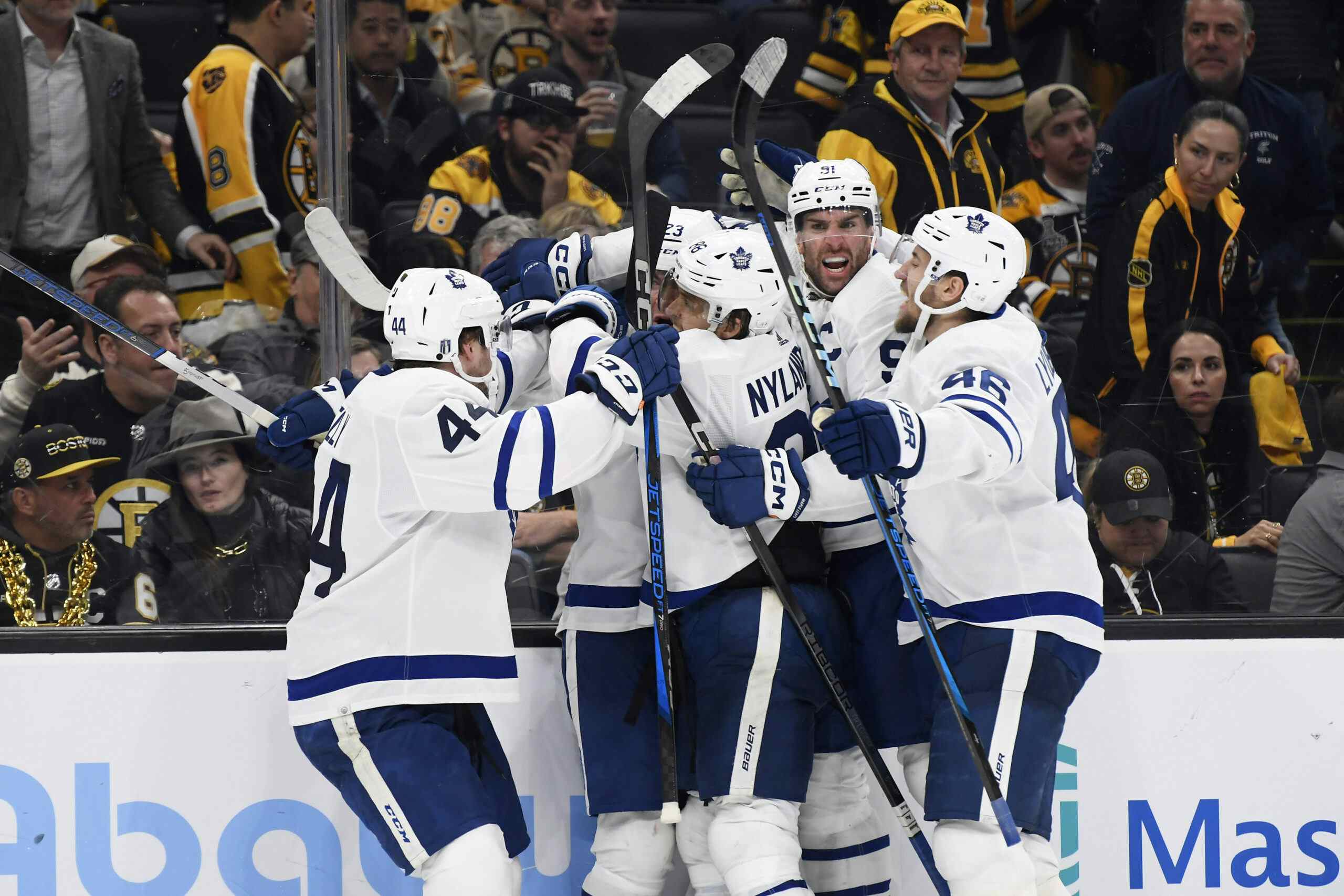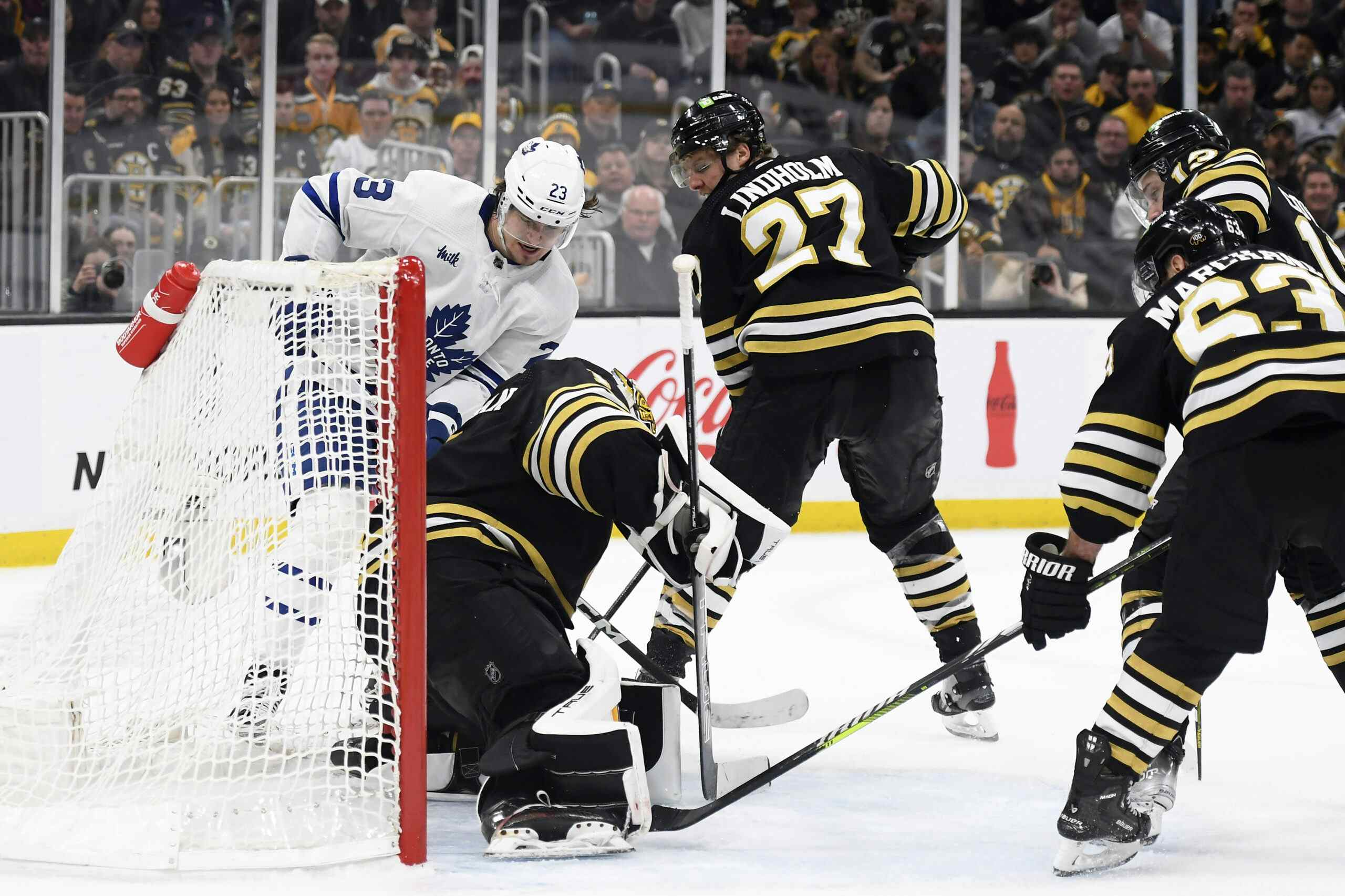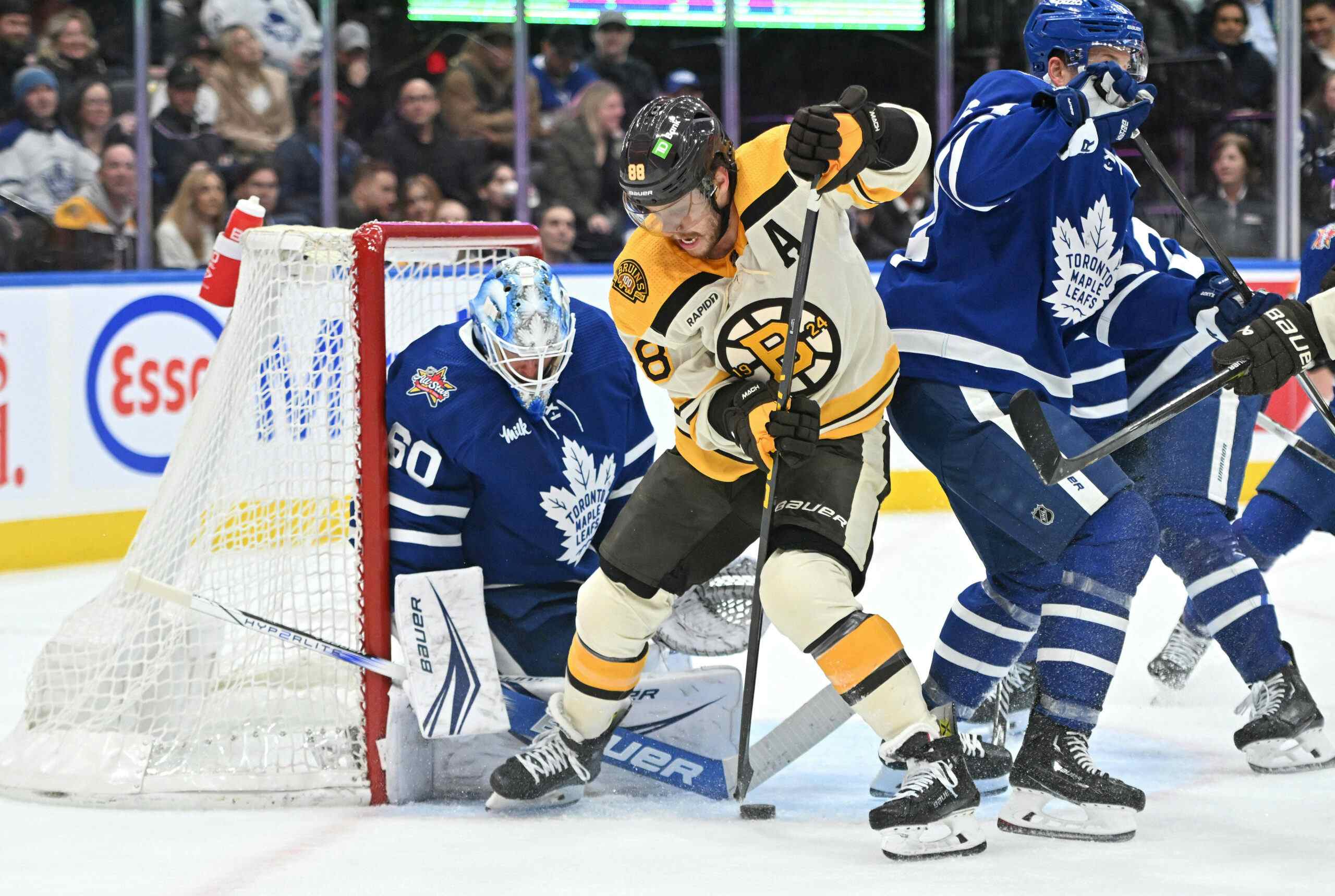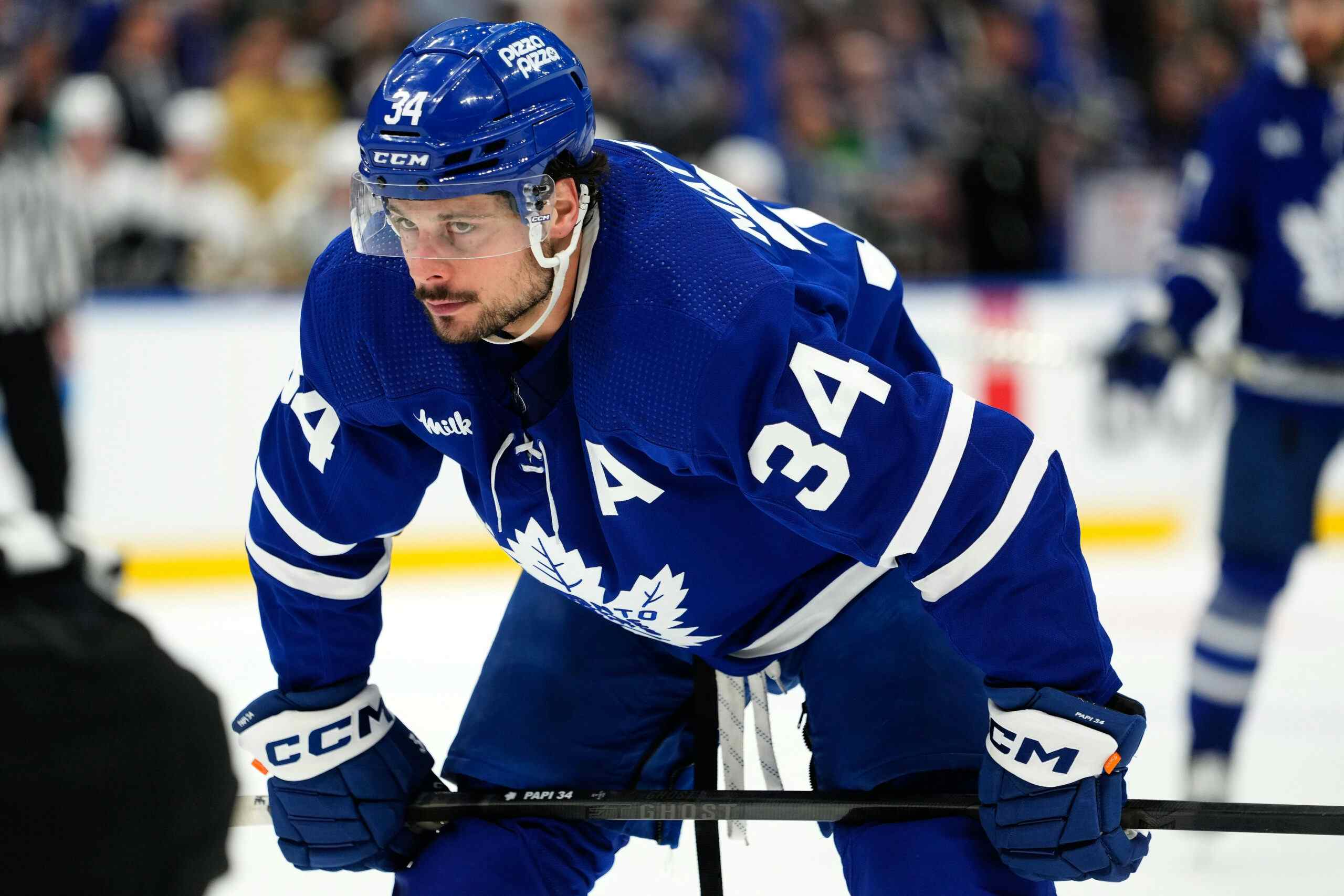WHO-lemin?: A discussion of Nikolai Kulemin, the player he is, and what he brings to a team
By Steve Dangle
9 years agoIf you’ve ever watched my videos or listened to my podcast, you know I’m a pretty excitable guy. When I feel a certain way about sometime, I’m not exactly one for subtlety. A month months ago I had an idea for a piece where I wanted to talk about how the Leafs were absolutely nuts for even considering moving forward without Nikolai Kulemin.
Perspective is a very key thing though. I’m confident in the opinions I have, but when I’m not sure I’m totally right I don’t like to pretend that I am. I called up pro scout Gus Katsaros (give that guy a follow), and we had a long discussion about the man I call the Magnitogorsk Mule.
Rather than write what I had originally planned, I’m posting the full transcribed discussion with Gus. After all, this seems like it’ll be Kulemin’s last day as a member of the Toronto Maple Leafs if all reports are correct. So Leafs fans, read this to see who the Leafs are losing and how they replace him, and Penguins fans if you’re here, here’s the guy you’ll probably be watching next season if the rumours are true.
Gus: Kulemin is not great at anything. He’s good at a lot of
things. For instance – I don’t want to call the 30 goals that he scored or his
offensive game and aberration, because it really isn’t. However he’s not very
imaginative with the puck. He doesn’t really create a lot of offence and he
doesn’t use his wingers in prime offensive roles. What he is, is all about
work, and it’s the ethic within that work that creates the opportunities for
himself and his wingers to create offence. Having said that, there are certain
things that he does well when he’s on. For instance, he’d be very good
defensively, however there are times where I just feel that he’s more reactive
than proactive. He seems like he’s working harder because he’s actually a step
behind or he took a bad angle and he really have to scramble to get back. He’s
harder along the boards because he’s making up for that space that he missed,
or that play that he missed, or something that broke down that he may have been
a direct or indirect cause of. Having said that, he’s pretty good in terms of
position, you know you’re going to get an honest effort out of him. I really
focus on that work ethic because I think that’s where everything begins and
ends with him. As long as he’s working hard, skating hard, and playing his
position in terms of where he should be with it in the system, he’s a very
effective player. Now, I had a lot of people telling me “Well watch when he
goes to the Olympics. He’s going to score all these goals and he’s going to be
a big part of the offence.” Well – you
kind of saw what happened there, right.
things. For instance – I don’t want to call the 30 goals that he scored or his
offensive game and aberration, because it really isn’t. However he’s not very
imaginative with the puck. He doesn’t really create a lot of offence and he
doesn’t use his wingers in prime offensive roles. What he is, is all about
work, and it’s the ethic within that work that creates the opportunities for
himself and his wingers to create offence. Having said that, there are certain
things that he does well when he’s on. For instance, he’d be very good
defensively, however there are times where I just feel that he’s more reactive
than proactive. He seems like he’s working harder because he’s actually a step
behind or he took a bad angle and he really have to scramble to get back. He’s
harder along the boards because he’s making up for that space that he missed,
or that play that he missed, or something that broke down that he may have been
a direct or indirect cause of. Having said that, he’s pretty good in terms of
position, you know you’re going to get an honest effort out of him. I really
focus on that work ethic because I think that’s where everything begins and
ends with him. As long as he’s working hard, skating hard, and playing his
position in terms of where he should be with it in the system, he’s a very
effective player. Now, I had a lot of people telling me “Well watch when he
goes to the Olympics. He’s going to score all these goals and he’s going to be
a big part of the offence.” Well – you
kind of saw what happened there, right.
Steve: That might be a coaching issue, which was a problem
in Vancouver, too.
in Vancouver, too.
Gus: Regardless, the bottom line here is if he was that good
offensively he probably would have been used in a prime offensive role, which
he wasn’t. There’s a reason for that. The one thing that I’ve always had a
little issue with Kulemin is that the skating is just terrible. It’s really,
really bad. He gets to where he can be because he’s a big and strong guy and
he’s able to kind of hold off guys, but he doesn’t use that same approach that
he did when he got into the league where he’s trying to hold off somebody and
bully his way to the net. He doesn’t do that much anymore. That’s why you see
him taking shots from the top of the circles. That’s why you don’t see him
getting really deep into the zone as much as he probably should or he’s used
to. At the same time, his usage is about being defensively responsible and
providing an offensive presence, so I can totally understand why he doesn’t go
that deep into the zone because he needs to be somewhere in the higher end in
order to be that defensive presence – that third forward high, the support on
the defensive side in case something does break down. At the same time, he’s
just not quick enough to be able to stop and start, transition, circle – it
takes him a while to get going. It really looks like he’s working hard all the
time because I think that his skating deficiencies are part of the reason for
that. That’s a big thing. The perception of somebody working hard is because of
either one of two things: They’re either really working hard or there’s
something wrong with them that that have to get back to do something correct.
As a penalty killer he has solid position, he knows how to use his stick, he
knows when to get in-between players, he knows where he should be on the ice,
he’s pretty good at fencing the play. He doesn’t react as well as he reads it
so that’s a little bit of a disconnect there. That’s why I say that I think he
does a lot of good things well but he doesn’t have a lot of elite features,
either – offensively or defensively.
offensively he probably would have been used in a prime offensive role, which
he wasn’t. There’s a reason for that. The one thing that I’ve always had a
little issue with Kulemin is that the skating is just terrible. It’s really,
really bad. He gets to where he can be because he’s a big and strong guy and
he’s able to kind of hold off guys, but he doesn’t use that same approach that
he did when he got into the league where he’s trying to hold off somebody and
bully his way to the net. He doesn’t do that much anymore. That’s why you see
him taking shots from the top of the circles. That’s why you don’t see him
getting really deep into the zone as much as he probably should or he’s used
to. At the same time, his usage is about being defensively responsible and
providing an offensive presence, so I can totally understand why he doesn’t go
that deep into the zone because he needs to be somewhere in the higher end in
order to be that defensive presence – that third forward high, the support on
the defensive side in case something does break down. At the same time, he’s
just not quick enough to be able to stop and start, transition, circle – it
takes him a while to get going. It really looks like he’s working hard all the
time because I think that his skating deficiencies are part of the reason for
that. That’s a big thing. The perception of somebody working hard is because of
either one of two things: They’re either really working hard or there’s
something wrong with them that that have to get back to do something correct.
As a penalty killer he has solid position, he knows how to use his stick, he
knows when to get in-between players, he knows where he should be on the ice,
he’s pretty good at fencing the play. He doesn’t react as well as he reads it
so that’s a little bit of a disconnect there. That’s why I say that I think he
does a lot of good things well but he doesn’t have a lot of elite features,
either – offensively or defensively.
Steve: In a cap world, is it worth $3.5 million to have a
player who can do a lot of things even if none of them are great?
player who can do a lot of things even if none of them are great?
Gus: That’s a good question. I think that with the increase to
the cap, especially signing him to $3.5 million to $4 million to long term, and
by long term I mean five years or more, you probably get decent value for that
contract. I don’t really think that he’s worth $4-$5 million as some people
seem to think.
the cap, especially signing him to $3.5 million to $4 million to long term, and
by long term I mean five years or more, you probably get decent value for that
contract. I don’t really think that he’s worth $4-$5 million as some people
seem to think.
Steve: No, no. I really like him and I wouldn’t even suggest
that.
that.
Gus: I know everybody keeps saying to throw him out with good
players and he produces – that’s B.S. That’s just a fabrication. The bottom line
here is his ability to produce is based on how hard he works, not based on who
he plays with. If he’s playing with Kessel it doesn’t mean he’s automatically
going to produce. All he does is shoot from the top of the circles. You can go
back and see all his goals and you’ll see exactly what I’m talking about. He’s
a great complimentary player. He’s a great support player. He’s one of those
guys that I’d like to call “plug-and-play.” Anywhere that you put him you know
that he’ll perform but the problem is sustainability in that regard, too. So
let’s say you put him on the first line just for a little bit of support. Is he
going to win that spot and stay there forever? No. If you put him on the second
line is he going to win that spot and stay there forever? No. He can play those
roles as a “plug-and-play” type of player. You know you’re going to get good
minutes out of him for a limited amount of time, at a limited expense, and then
things start to change and you have to change his role somewhat. That’s why
[the Leafs] kind of use him at centre because he’s versatile as I said, they
can use him as a winger on the second line, and they can use him as a winger on
the third line, or they can plug him in, in case somebody gets hurt on the
first line. But he’s not one of those guys who grabs that role and runs with
it. He’s a support player.
players and he produces – that’s B.S. That’s just a fabrication. The bottom line
here is his ability to produce is based on how hard he works, not based on who
he plays with. If he’s playing with Kessel it doesn’t mean he’s automatically
going to produce. All he does is shoot from the top of the circles. You can go
back and see all his goals and you’ll see exactly what I’m talking about. He’s
a great complimentary player. He’s a great support player. He’s one of those
guys that I’d like to call “plug-and-play.” Anywhere that you put him you know
that he’ll perform but the problem is sustainability in that regard, too. So
let’s say you put him on the first line just for a little bit of support. Is he
going to win that spot and stay there forever? No. If you put him on the second
line is he going to win that spot and stay there forever? No. He can play those
roles as a “plug-and-play” type of player. You know you’re going to get good
minutes out of him for a limited amount of time, at a limited expense, and then
things start to change and you have to change his role somewhat. That’s why
[the Leafs] kind of use him at centre because he’s versatile as I said, they
can use him as a winger on the second line, and they can use him as a winger on
the third line, or they can plug him in, in case somebody gets hurt on the
first line. But he’s not one of those guys who grabs that role and runs with
it. He’s a support player.
Steve: I look at the Leafs’ forwards and they’re about as
healthy as they can be (their only significant injury at the time was David
Bolland) yet he’s still on and off the second line. I just think that useless
there’s a really good option out there worth spending the money on, he’s worth
keeping for that price.
healthy as they can be (their only significant injury at the time was David
Bolland) yet he’s still on and off the second line. I just think that useless
there’s a really good option out there worth spending the money on, he’s worth
keeping for that price.
Gus: I would agree with that. Absolutely.
Steve: That’s if he even wants to stay in this city or with
this time. He might not even like it here.
this time. He might not even like it here.
Gus: The other thing too is you have to figure if some other team
really feels that he is versatile enough that they can kind of plug-and-play
him in the same manner that works now, perhaps they’re willing to pay him a bit
of a premium in order for him to leave this city. At the same time, players
like that are kind of like a dime a dozen. You could probably find somebody
like that who’s worth… I’m probably going to throw out a name that everybody’s
pretty much used to – John Mitchell. John Mitchell is a plug-and-play king of
guy. He’s never going to be a front line guy but if you really need someone to
fill that spot for a short period of time, and just make sure that he does the
job, he’s the type of guy who can do that. John Mitchell makes $1.8 million vs.
Kulemin making $3 million or $4 million or whatever it is. Now you have to look
at it from the perspective of “Can I find another play who may be able to do
that plug-and-play type of role at a cheaper price where I can allocate that
money to a better scorer, better defenceman, etc.
really feels that he is versatile enough that they can kind of plug-and-play
him in the same manner that works now, perhaps they’re willing to pay him a bit
of a premium in order for him to leave this city. At the same time, players
like that are kind of like a dime a dozen. You could probably find somebody
like that who’s worth… I’m probably going to throw out a name that everybody’s
pretty much used to – John Mitchell. John Mitchell is a plug-and-play king of
guy. He’s never going to be a front line guy but if you really need someone to
fill that spot for a short period of time, and just make sure that he does the
job, he’s the type of guy who can do that. John Mitchell makes $1.8 million vs.
Kulemin making $3 million or $4 million or whatever it is. Now you have to look
at it from the perspective of “Can I find another play who may be able to do
that plug-and-play type of role at a cheaper price where I can allocate that
money to a better scorer, better defenceman, etc.
Steve: Is there a play in the Leafs’ system who you think
could fill in that type of role?
could fill in that type of role?
Gus: Not right now, no.
Steve: Carter Ashton couldn’t do that?
Gus: I don’t think so, no. Carter Ashton I think is a good bottom
line guy. He scores a lot in the AHL but translating goals in the AHL to the
NHL – they’re very different. His skating is just very similar to Kulemin’s, in
fact. It’s choppy, it’s not refined. He can get up to speed and he’s a lot
quicker than Kulemin is but, again, the scoring prowess really isn’t there. If
I have to make a distinct choice for a player who would be as close to Kulemin
as possible, Ashton would be one. You could probably make a case for Troy
Bodie. I mean, I wouldn’t throw him on any top two lines but if he works,
right? That’s the bottom line. He’s a worker bee.
line guy. He scores a lot in the AHL but translating goals in the AHL to the
NHL – they’re very different. His skating is just very similar to Kulemin’s, in
fact. It’s choppy, it’s not refined. He can get up to speed and he’s a lot
quicker than Kulemin is but, again, the scoring prowess really isn’t there. If
I have to make a distinct choice for a player who would be as close to Kulemin
as possible, Ashton would be one. You could probably make a case for Troy
Bodie. I mean, I wouldn’t throw him on any top two lines but if he works,
right? That’s the bottom line. He’s a worker bee.
Steve: With Bodie and Kulemin, we’re talking about two
players who I love but would never put – well, I might put Kulemin in my top
six in some situations – but I would never expect that to be a regular thing.
players who I love but would never put – well, I might put Kulemin in my top
six in some situations – but I would never expect that to be a regular thing.
Gus: Exactly. And the same thing for Bodie, right?
Steve: Moreso for Bodie. I would never put him in my top
six.
six.
Gus: A lot of people are going to tell you that Kulemin is an
elite defensive guy. He’s not. We both know that, we’ve talked about that
before. He’s that versatile plug-and-play guy, you know what you get out of
him, you know that he plays above and beyond his deficiencies, and I use that
world really lightly. It’s not like he’s terrible or anything. Every player has
to work above and beyond what they’re capable of, right? He gives you that
honest effort, but there are times where I feel like he does lag, and when he
lags he’s just invisible. We saw long periods of time where he did end up going
invisible. Why? Because I just didn’t feel there was a fire under there, right?
Maybe there wasn’t an incentive to do well, maybe there was a particular role
he didn’t like. There’s so many different factors that contribute to stuff like
that. Then you’ve got the other Kulemin he is just on fire when he’s on fire.
He’s fast, capable of doing things, showing that he does have a little bit of a
scoring touch although it’s for short flashes and not for sustained periods of
time. Those short flashes are sometimes a little more memorable than the long
periods where he’s not really doing anything.
elite defensive guy. He’s not. We both know that, we’ve talked about that
before. He’s that versatile plug-and-play guy, you know what you get out of
him, you know that he plays above and beyond his deficiencies, and I use that
world really lightly. It’s not like he’s terrible or anything. Every player has
to work above and beyond what they’re capable of, right? He gives you that
honest effort, but there are times where I feel like he does lag, and when he
lags he’s just invisible. We saw long periods of time where he did end up going
invisible. Why? Because I just didn’t feel there was a fire under there, right?
Maybe there wasn’t an incentive to do well, maybe there was a particular role
he didn’t like. There’s so many different factors that contribute to stuff like
that. Then you’ve got the other Kulemin he is just on fire when he’s on fire.
He’s fast, capable of doing things, showing that he does have a little bit of a
scoring touch although it’s for short flashes and not for sustained periods of
time. Those short flashes are sometimes a little more memorable than the long
periods where he’s not really doing anything.
Steve: See this is where logical discussion sucks. I wanted
to write about “Here’s why the Leafs are nuts if they don’t keep Kulemin” which
is an easy article to write because you don’t have to worry about being right.
Then there’s “here’s why he’s replaceable” which is also easy to write. Then
there’s now “I would like them to keep him but here’s why I wouldn’t blame them
for not.”
to write about “Here’s why the Leafs are nuts if they don’t keep Kulemin” which
is an easy article to write because you don’t have to worry about being right.
Then there’s “here’s why he’s replaceable” which is also easy to write. Then
there’s now “I would like them to keep him but here’s why I wouldn’t blame them
for not.”
Gus: But I think that’s probably the best premise that you have,
right? We discussed. It’s a positive, not a negative. I’m not trying to dump on
the guy but you’re also assuming the risks that come along with signing a
player long-term who isn’t contributing a lot offensively – David Clarkson.
right? We discussed. It’s a positive, not a negative. I’m not trying to dump on
the guy but you’re also assuming the risks that come along with signing a
player long-term who isn’t contributing a lot offensively – David Clarkson.
Steve: Can Clarkson get it back?
Gus: I don’t think he ever had it in the first place.
Steve: Damn it.
Gus: Anyway, I’m not comparing Kulemin to Clarkson. I’m saying
that there’s a risk involved in the perception that you think that this guy is
much better than he really is. I would stick to the fact that he is versatile
and a plug-and-play guy. He’s good at things for short periods, not for
sustained periods of time. If you’re willing to accept that, then he’s a
valuable player on your roster and every team has one. It’s not like he’s
unique in that regard. Teams like to keep those kinds of players. There’s lots
of really good examples of that kind of stuff, too. Guys like Marcel Goc. That
guy’s another one, too. Plug and play. You can throw him anywhere and he’ll do
things, for sure, but for a short period of time.
that there’s a risk involved in the perception that you think that this guy is
much better than he really is. I would stick to the fact that he is versatile
and a plug-and-play guy. He’s good at things for short periods, not for
sustained periods of time. If you’re willing to accept that, then he’s a
valuable player on your roster and every team has one. It’s not like he’s
unique in that regard. Teams like to keep those kinds of players. There’s lots
of really good examples of that kind of stuff, too. Guys like Marcel Goc. That
guy’s another one, too. Plug and play. You can throw him anywhere and he’ll do
things, for sure, but for a short period of time.
Steve: I thought Marcel Goc was a good pickup for
Pittsburgh.
Pittsburgh.
Gus: Lee Stempniak was like that, too. He wasn’t terrible, he
wasn’t great. You put him into little roles, give him a little responsibility,
and he’ll do what he has to do. He doesn’t sustain that, he’s never going to be
a 50-goal-scorer, but he can score a few goals in a certain period of time over
a short period of time in a defined role.
Look at Alex Burrows. He was from the ECHL. He goes and plays the Sedins
and everyone thinks he’s a scorer. There’s a reason why he struggled this year.
He’s not a goal-scorer. Sometimes image and what we think a player is really
like are very, very different. Kulemin is one of those chameleon guys who can
look incredible and that’s what everybody remembers, he goes and gets lost in
the scenery, and you go and blame others for his play. It’s just not right.
wasn’t great. You put him into little roles, give him a little responsibility,
and he’ll do what he has to do. He doesn’t sustain that, he’s never going to be
a 50-goal-scorer, but he can score a few goals in a certain period of time over
a short period of time in a defined role.
Look at Alex Burrows. He was from the ECHL. He goes and plays the Sedins
and everyone thinks he’s a scorer. There’s a reason why he struggled this year.
He’s not a goal-scorer. Sometimes image and what we think a player is really
like are very, very different. Kulemin is one of those chameleon guys who can
look incredible and that’s what everybody remembers, he goes and gets lost in
the scenery, and you go and blame others for his play. It’s just not right.
Recent articles from Steve Dangle

